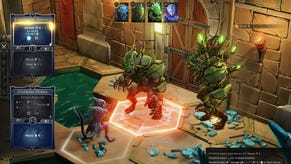Core games remain "best investment" for publishers
Survey recognises growth in online gaming but not at expense of AAA market; Move/Kinect not attracting new consumers
A new survey by Cowan & Company has concluded that software for the core videogames market is still the best investment for a traditional publishing company, despite the rise of online social gaming and multi-use devices.
Less than five per cent of 2301 respondents said that they had bought fewer console games as a result of increased time playing online, social or free-to-play titles, and games on hardware such as the iPad.
And although demand for motion controllers Move and Kinect is high amongst owners of the PlayStation 3 and Xbox 360, the results indicate that demand from non-owners of the home consoles appears "tepid."
More favourable for non-owners would be a price cut to current hardware, found the survey, with respondents willing to pay around $30 less than current US prices of Xbox 360 and PS3.
"We believe that the hardware manufacturers have left unit sales on the table by not reducing price points from $199 to $179 and $299 to $249 for the applicable consoles, and that doing so would have driven a more significant boost to hardware sales than the release (for Microsoft and Sony) of new motion-sensing peripherals.
"We view continued stubbornly high hardware price points as one of the key factors dragging down software sales," said the report.
Other conclusions from the report were that 76 per cent of online console gamers had bought some form of downloadable content in the past year, with 46 per cent spending over $20.
"The results of our Fall 2010 Videogame Survey do not change our view that high-quality games for the core gamer remain the best investment for videogame publishers despite changes to the structure of the videogame industry," concluded the report.








